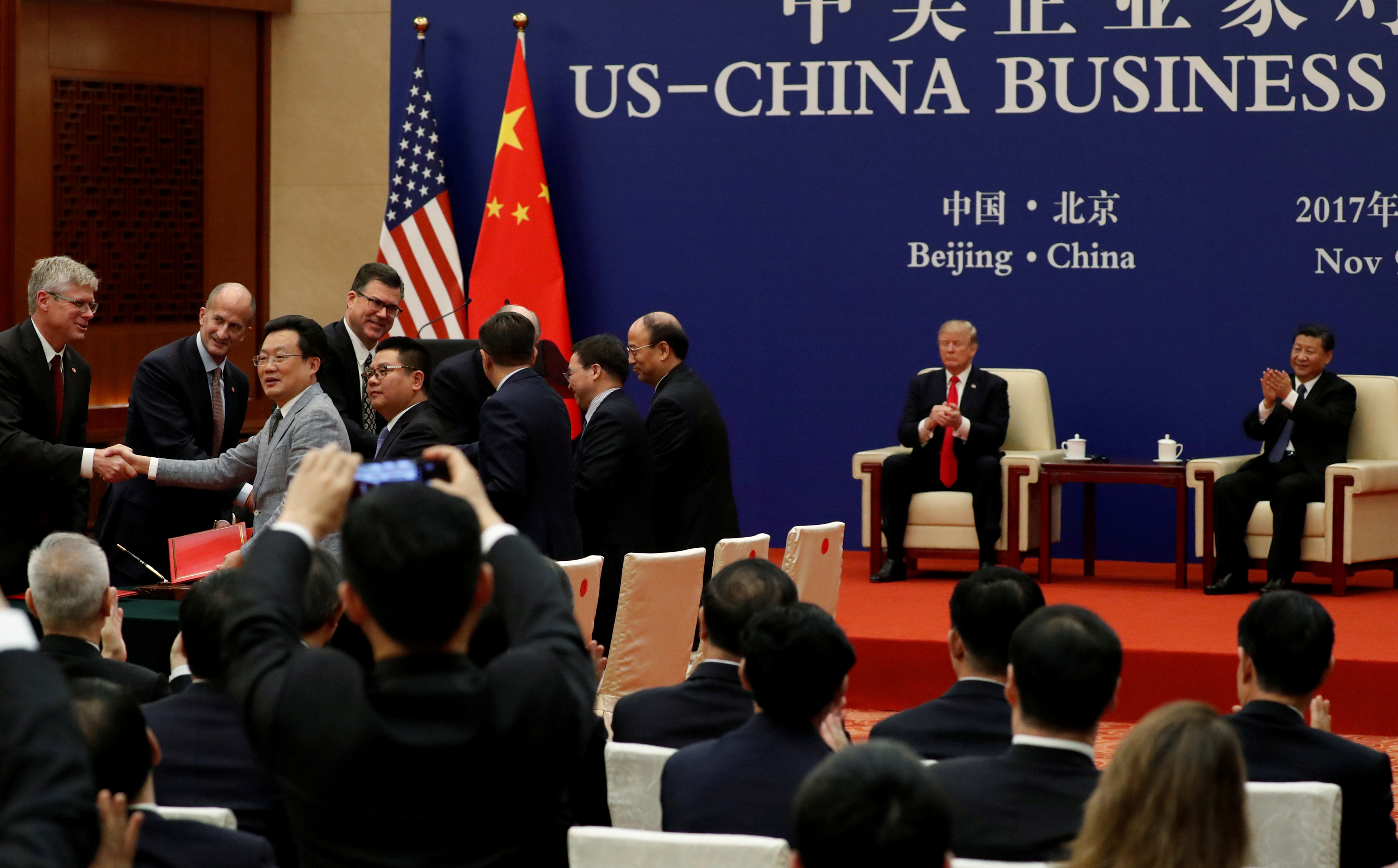Make no mistake: Trump’s trade turmoil with China can hurt Alaska’s Arctic gas line
OPINION: Although Alaska backers have put on a brave face, new Chinese tariffs against LNG — part of an escalating U.S.-China trade war — could kill the project.

FAIRBANKS — It’s time for Alaska Gov. Bill Walker to admit the obvious — the Trump trade war with China threatens the proposed $43 billion Arctic natural gas pipeline long seen as a vital piece of Alaska’s economic future.
This will be hard for him to do because Walker has made the dream of a gas pipeline the centerpiece of his political career.
Now, the project is not dead. As long as there are trillions of cubic feet of natural gas on the North Slope and Alaska promoters, the idea of getting that energy from the Arctic to market will survive.
But no one should interpret the latest signals from Trump and China as positive developments for the Alaska project.
At the very least, the Trump turmoil creates uncertainty and delay for the Alaska venture.
Long-term deals to commit enormous sums cannot be completed in the midst of this trade chaos, so forget about having contracts signed by the end of this year, as envisioned by the state timetable.
The plan is to construct a pipeline across Alaska from the North Slope to Nikiski, where the gas would be liquefied and placed on tankers for shipment to China and other energy-hungry markets.
But the real cost of gas won’t be known until both nations make peace over trade policies and establish a level of trust that does not exist today.
The governor’s re-election campaign has complicated the picture as well and we really can’t say at this point if the biggest obstacle to the project is Trump’s scattershot presidency of Trump or the decades of construction, marketing and transportation challenges to come.
Walker has followed the blueprint of every governor who preceded him in proclaiming that the gas pipeline prize is within reach and claiming that progress is the word of the day.
Truth be told, wishful thinking has been an integral part of gas pipeline plans in Alaska for decades. That remains the case.
The state and China signed a non-binding joint development agreement last November before an audience that included Trump and China President Xi Jinping.
On Wednesday, China added LNG to its list of items to be hit with a 25 percent tariff, a tax that starts later in the month.
Adding a tariff to Alaska gas would make the end product more costly, a serious threat to the pipeline economics.
It would make the project less competitive compared to others around the world — including elsewhere in the Arctic — that are aiming for the same market.
With the high cost of Alaska construction, the last thing the project needs is another strike against it.
The question for the moment is how long the tariff will stay in place. For as long as the tariff lasts, the Alaska project is going nowhere.
The salesmen at the state-owned Alaska Gasline Development Corp. have claimed that “current trade tensions between the United States and China will be resolved well in advance of Alaska LNG exports to China. The Alaska LNG Project represents a multigenerational project that matches China’s 100 years of natural gas demand with Alaska’s 100 years of supply on the North Slope.”
For his part, Walker said that “short-term trade tensions do not change this long-term value proposition.”
There is truth in both statements, but in the long run we’ll all be dead.
Alaska gasline proponents are assuming that the tariff is part of a negotiating dance and it won’t last long.
What’s missing is any admission that Trump’s turmoil prevents the completion of binding agreements for a long as “short-term trade tensions” continue. That could be months or years.
No one will be able to conclude that the project is in Alaska’s best interest until final contracts are signed and made public.
The Financial Times said the China tariff is a “potentially serious blow” to projects in Louisiana, Texas and Alaska.
That is what Alaska officials should be saying, instead of repeating that Alaska gas exports are a “win-win” for China and the U.S.
It’s possible that the Alaska corporation will in time find companies to build the pipeline and buy the gas, but Alaska politicians should stop pretending that the Trump trade war is not a real setback — of unknown duration.
Columnist Dermot Cole lives in Fairbanks and can be reached at [email protected].
The views expressed here are the writer’s and are not necessarily endorsed by ArcticToday, which welcomes a broad range of viewpoints. To submit a piece for consideration, email commentary (at) arctictoday.com.